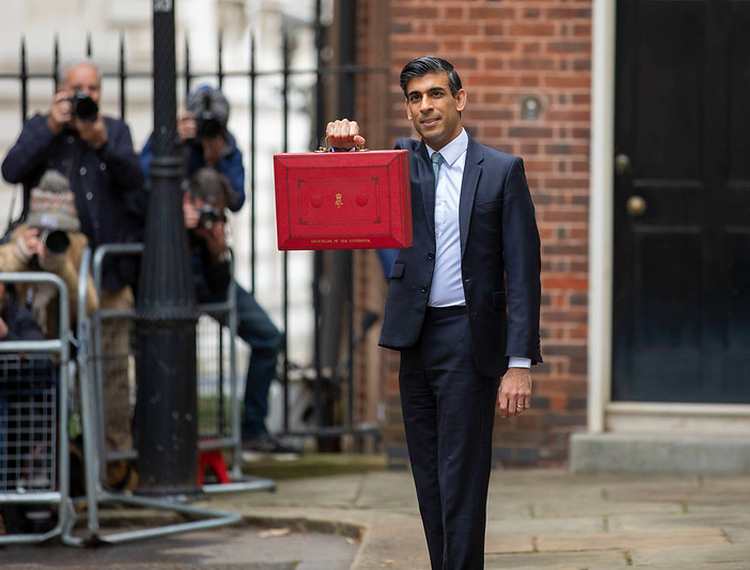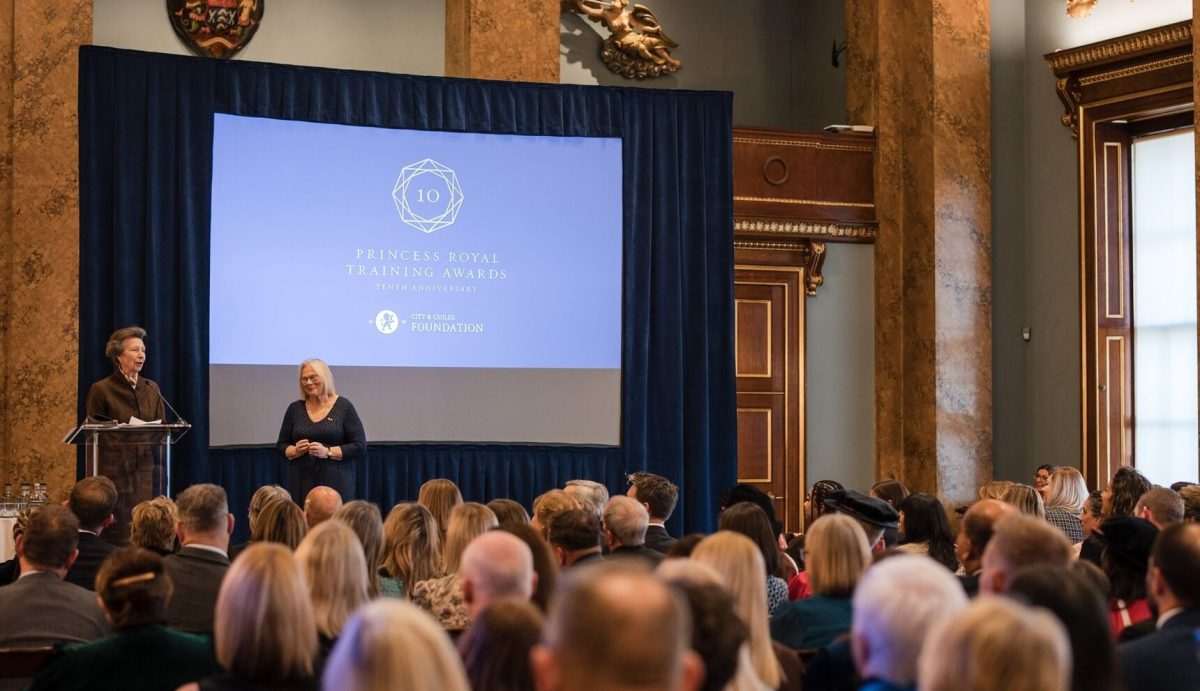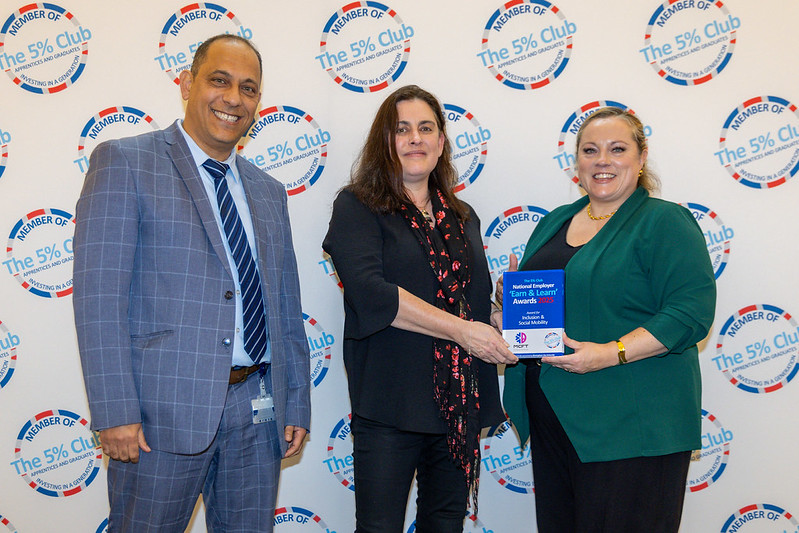#Budget2021: What you need to know

£7 million funding for Flexi-Job Apprenticeship Programmes
Today (3 Mar) the Chancellor @RishiSunak delivered the #Budget for 2021, with an optimistic vision for the future of the UK’s economy, and honesty about the choices we need to make to provide certainty.
BUDGET FACTSHEET: PLAN FOR JOBS
Throughout the crisis, the UK Government’s priority has been to protect, support and create jobs through its Plan for Jobs.
This Budget sets out the next phase of this support – ensuring hope and opportunity is spread across the UK.
What does this Budget do to protect and support jobs?
- Extending the Coronavirus Job Retention Scheme to 30 September 2021. Employees will continue to receive 80% of their current salary for hours not worked.
- Six-month extension of £20 Universal Credit uplift and a one-off payment of £500 to Working Tax Credit claimants.
- Extension of the apprenticeship hiring incentive to September 2021 and an increase of payment to £3,000.
- A new “flexi-job” apprenticeship programme to be created from a £7 million fund, which will enable apprentices to work with several employers in one sector.
- £126 million in additional support for 40,000 more traineeships in England, funding high quality work placements and training for 16-24-year olds in 2021-22.
- £1.3 million over 2021-22 and 2022-23 to pilot the use of new technologies to support people in or out of work to find new job opportunities which are best suited to their skills and experience.
What are you doing to support self-employed people?
- Extending the Self-Employment Income Support Scheme (SEISS) until 30 September 2021 with a fourth and fifth grant. In a major improvement in access to the self-employed scheme, more than 600,000 people, many of whom became self-employed in 2019-20, may now be able to claim direct cash grants under the Self-Employment Income Support Scheme.
- The fourth SEISS grant will be worth 80% of average monthly trading profits, paid out in a single instalment covering three months’ worth of annual profits, and capped at £7,500 in total. The scheme will open for claims in late April.
- The fifth SEISS grant providing support in the summer will include a turnover test to target support towards those most affected by the pandemic.
- The latest grants bring the total support provided to self-employed during the crisis to £34 billion.
What are you doing to support businesses to protect jobs?
- A new Restart Grant – a one off cash grant of up to £18,000 for hospitality, accommodation, leisure, personal care and gym businesses in England.
- Extension to the VAT cut to 5% for hospitality, accommodation and tourism.
- Extension of business rates holiday meaning over 350,000 business properties in retail, hospitality and leisure will now not pay rates for three months
- A new UK-wide Recovery Loan Scheme to make available between £25,000 and £10 million to help businesses of all sizes through the next stage of recovery.
These new measures build on the support already available through the Plan for Jobs which includes:
- £46.6 billion worth of support to date through the Coronavirus Job Retention Scheme (CJRS), helping pay the wages of 11.2 million people.
- £18.9 billion through the Self-Employment Income Support Scheme (SEISS), supporting 2.7 million self-employed workers.
- £1.4 billion additional funding in 2021-22 to sustain the doubling of the number of work coaches to 27,000.
- £2 billion Kickstart Scheme to help hundreds of thousands of young people at risk of long-term unemployment.
- Raft of new job support schemes including Job Finding Support offer, Job Entry Targeted Support scheme and the Sector-Based Work Academy Programme (SWAPs).
- £2.9 billion Restart programme to provide intensive and tailored support to over 1 million unemployed people.
- £375 million to help adults to upskill and reskill to boost their job prospects
BUDGET 2021 FACT SHEET: SUPPORTING BUSINESS AND LEVELLING UP
The Budget delivers on the Government’s commitment to support business through the pandemic and level up every corner of the UK.
How does this Budget support businesses?
- We are bolstering our Plan for Jobs, through a Budget that will continue to protect, support and create employment across the country.
- Extending the Coronavirus Job Retention Scheme to 30 September 2021. Employees will continue to receive 80% of their current salary for hours not worked.
- Extension to the VAT cut to 5% for hospitality, accommodation and attractions until the end of September, followed by a 12.5% rate for a further six months until 31 March 2022.
- 750,000 eligible businesses in the retail, hospitality and leisure sectors in England will benefit from business rates relief.
- Small and medium-sized employers will continue to be able to reclaim up to two weeks of eligible Statutory Sick Pay costs per employee from the government.
- Once the existing COVID-19 business loan schemes close at the end of March, having supported £73bn worth of lending to date, we will launch the new Recovery Loan Scheme. This maintains a generous 80% guarantee to lenders to ensure they have the confidence to continue to lend to viable companies trading in the UK.
- £5 billion for new Restart Grants – a one off cash grant of up to £18,000 for hospitality, accommodation, leisure, personal care and gym businesses in England.
- To further support the cashflow of businesses, the government is extending the loss carry back rules worth up to £760,000 per company.
- Extension of the Film & TV Production Restart scheme and an additional £300 million to support theatres, museums and other cultural organisations in England through the Culture Recovery Fund.
- More than doubling the legal limit for single contactless payments, from £45 to £100 – make it easier for people to pay for their shopping, providing a boost to retail sector.
- An extension of the apprenticeship hiring incentive for businesses to September 2021, increasing the payment to £3,000 for each apprentice they hire – regardless of age.
- £7 million for a new “flexi-job” apprenticeship programme, that will enable apprentices to work with a number of employers in one sector such as the creative industries, and an additional £126 million for 40,000 more traineeships in England.
- £126 million in additional support for 40,000 more traineeships in England, funding high quality work placements and training for 16-24-year olds in 2021-22.
How will the Budget help businesses to innovate?
- Eight new English Freeports will be based in East Midlands Airport, Felixstowe & Harwich, Humber, Liverpool City Region, Plymouth, Solent, Thames and Teesside.
- The Help to Grow scheme will give up to 130,000 SMEs the tools to become more productive. It will offer business leaders access to top management training, and a new online service offering free advice on how to improve their digital capability, with government vouchers to buy approved software.
- We are reforming the visa system to attract the brightest and best global talent to the UK.
- The ‘Future Fund: Breakthrough’ scheme will continue to support highly innovative companies, such as those working in life sciences, quantum computing, or clean tech, that are aiming to raise at least £20 million of funding.
- We are consulting on tax reliefs in the research and development sector. This aims keep the UK as a competitive location for cutting edge research.
How does the Budget ‘level up’ the country?
- The £4.8 billion Levelling Up Fund has been extended to the whole of the UK and will invest in local projects, such as regeneration and transport. The prospectus published today provides guidance for local areas on how to apply for funding.
- People across the UK will benefit from new support for local communities, skills and jobs through the launch of the £220 million Community Renewal Fund.
- A new Civil Service campus will be created in Darlington, boosting employment opportunities and decentralising decision making.
- A further 45 towns across England will benefit from £1 billion funding from the Towns Fund to support their long-term economic and social regeneration
- To preserve regional connectivity and support jobs in communities around airports, the government is renewing support for airports and ground handlers, to help meet fixed costs such as business rates.
- £150 million Community Ownership Fund will allow communities to invest to protect the assets that matter most to them such as pubs, theatres, shops, or local sports clubs.
- £18.8 million to transform local cultural projects in Hartlepool, Carlisle, Wakefield and Yeovil.
- £27 million in the Aberdeen Energy Transition Zone and £5 million in the Global Underwater Hub in Scotland, the first stage in delivering the North Sea Transition Deal.
- Three Growth Deals in Scotland – Ayrshire, Argyll & Bute, and Falkirk – will receive funding more quickly.
- £4.8 million to support the development of a demonstration hydrogen hub in Holyhead, Anglesey.
- £30 million for the Global Centre for Rail Excellence in Wales.
- Three City and Growth Deals – in North-Wales, Mid-Wales and Swansea Bay – will receive funding more quickly.
- Northern Ireland will benefit from the Corporation Tax exemption for the Northern Ireland Housing Executive, Northern Ireland’s biggest landlord.
- Almost half of the £400 million New Deal for Northern Ireland funding has been set aside for supermarket support, resilient medicine supplies and skills.
BUDGET 2021 FACTSHEET – SUPPORT FOR INDIVIDUALS
We know that individual livelihoods have been hit hard by the pandemic, and people need extra support during these difficult times. That’s why we are building on our extensive support for individuals across the UK in this Budget, delivering jobs, new opportunities and security through a strengthened welfare safety net.
Supporting and protecting jobs and incomes
- Extending the Coronavirus Job Retention Scheme to 30 September 2021. Employees will continue to receive 80% of their current salary for hours not worked.
- Working parents can be furloughed if they need to look after their children and can ask their employer for this.
- We have ensured women will not lose Statutory Maternity Pay (SMP) if their roles have been furloughed.
- Extending the Self-Employment Income Support Scheme (SEISS) until 30 September 2021 with a fourth and fifth grant. In a major improvement in access to the self-employed scheme, more than 600,000 people, many of whom became self-employed in 2019-20, may now be able to claim direct cash grants under SEISS.
- Supporting jobs in the hospitality, retail and leisure sectors in England, with eligible businesses benefitting from business rates relief worth over £6 billionin 21-22.
Creating opportunities with our Plan for Jobs
- £1.3 million over 2021-22 and 2022-23 to pilot the use of new technologies to support people in or out of work to find new job opportunities which are best suited to their skills and experience.
- Continuing the £2 billion Kickstart Scheme to help hundreds of thousands of young people at risk of long-term unemployment.
- Launching the £2.9 billion Restart programme to provide intensive and tailored support to over 1 million unemployed people.
- A new “flexi-job” apprenticeship programme to be created from a £7 million fund, which will enable apprentices to work with several employers in one sector.
- £126 million in additional support for 40,000 more traineeships in England, funding high quality work placements and training for 16-24-year olds in 2021-22.
- Extension of the apprenticeship hiring incentive to September 2021 and an increase of payment to £3,000.
Giving extra financial support to those who need it
- At this Budget we are announcing further welfare support as we open up the economy.
- The Universal Credit uplift of £20 a week is being extended for another six months, and those on Working Tax Credit will receive an equivalent one-off payment of £500.
- Small and medium-sized employers will continue to be able to reclaim up to two weeks of eligible Statutory Sick Pay (SSP) costs per employee from the Government. This will give further support to individuals who have to self-isolate, extending £500 Test and Trace support payments in England until the summer.
- Increasing the National Living Wage to £8.91 from April
Strengthening public finances
- Fuel duty will be frozen for the 11thconsecutive year.
- Alcohol duties will be frozen across the board for the second year running saving drinkers £1.7 billion.
- Extension to the temporary cut in Stamp Duty Land Tax to September.
- A new mortgage guarantee scheme will enable homebuyers to secure a mortgage up to £600,000 with a 5% deposit
- Extension of the temporary 5% reduced rate of VAT until 30 September 2021.
Measures announced by Chancellor Rishi Sunak in the Budget
1. Covid-19
- An extra £1.65 billion cash injection to ensure the Covid-19 vaccination roll-out in England continues to be a success.
- £28 million to increase the UK’s capacity for vaccine testing, support for clinical trials and improve the UK’s ability to rapidly acquire samples of new variants of COVID-19.
- £22 million for a world-leading study to test the effectiveness of combinations of different Covid-19 vaccines. This will also fund the world’s first study assessing the effectiveness of a third dose of vaccine to improve the response against current and future variants of COVID-19.
- A further £5 million on top of a previous £9 million investment in clinical-scale mRNA manufacturing, to create a ‘library’ of vaccines that will work against Covid-19 variants for possible rapid response deployment.
- Extending £500 Test and Trace support payments in England until the summer.
2. Protecting jobs and livelihoods
- An extension of the Coronavirus Job Support Scheme to September 2021 across the UK.
- An extension of the UK-wide Self Employment Income Support scheme to September 2021, with 600,000 more people who filed a tax return in 2019-20 now able to claim for the first time.
- An extension to the temporary cut in Stamp Duty Land Tax in England and Northern Ireland until September will support the housing market and protect and create jobs.
- A new mortgage guarantee scheme will enable all UK homebuyers secure a mortgage up to £600,000 with a 5% deposit.
- £5 billion for new Restart Grants – a one off cash grant of up to £18,000 for hospitality, accommodation, leisure, personal care and gym businesses in England.
- A new UK-wide Recovery Loan Scheme to make available loans between £25,001 and £10 million, and asset and invoice finance between £1,000 and £10 million, to help businesses of all sizes through the next stage of recovery.
- Extension of the Film & TV Production Restart scheme in the UK, with an additional £300 million to support theatres, museums and other cultural organisations in England through the Culture Recovery Fund.
- Six-month extension of the £20 per week Universal Credit uplift in Great Britain, with the Northern Ireland Executive receiving additional funding to match the increase. A one-off payment of £500 to eligible Working Tax Credit claimants across the UK.
- Extension to the VAT cut to 5% for hospitality, accommodation and attractions across the UK until the end of September, followed by a 12.5% rate for a further six months until 31 March 2022.
- 750,000 eligible businesses in the retail, hospitality and leisure sectors in England will benefit from business rates relief.
- Extension of the apprenticeship hiring incentive in England to September 2021 and an increase of payment to £3,000.
- £7 million for a new “flexi-job” apprenticeship programme in England, that will enable apprentices to work with a number of employers in one sector.
- Additional £126 million for 40,000 more traineeships in England, funding high quality work placements and training for 16-24 year olds in 2021/22 academic year.
-
More than doubling the legal limit for single contactless payments, from £45 to £100
-
£10 million to support veterans with mental health needs across the UK.
- £19 million to tackle domestic abuse in England and Wales, with funding for a network of ‘Respite Rooms’ to support homeless women and a programme to prevent reoffending.
- £90 million funding to support our government-sponsored national museums in England due to the financial impact of Covid-19.
- £300 million for major spectator sports, supporting clubs and governing bodies in England as fans begin to return to stadia.
- Small and medium-sized employers in the UK will continue to be able to reclaim up to two weeks of eligible Statutory Sick Pay (SSP) costs per employee from the Government.
- To further support the cashflow of businesses, the government is extending the loss carry back rules worth up to £760,000 per company.
- £100 million for a new Taxpayer Protection Taskforce to crack-down on COVID fraudsters who have exploited UK Government support schemes.
3. Strengthening the public finances
- Maintaining the income tax Personal Allowance and higher rate threshold from April 2022 until April 2026.
- To balance the need to raise revenue with the objective of having an internationally competitive tax system, the rate of Corporation Tax will increase to 25%, which will remain the lowest rate in the G7. In order to support the recovery, the increase will not take effect until 2023. Businesses with profits of £50,000 or less, around 70% of actively trading companies, will continue to be taxed at 19% and a taper above £50,000 will be introduced so that only businesses with profits greater than £250,000 will be taxed at the full 25% rate.
- Maintaining inheritance tax thresholds at their current levels until April 2026.
- Fuel duty will be frozen for the 11thconsecutive year.
- Alcohol duties will be frozen across the board for the second year running saving drinkers £1.7 billion.
- Capping the amount of SME payable R&D tax credit that a business can receive in any one year at £20,000 (plus three times the company’s total PAYE and NICs liability).
- Maintaining the Lifetime Allowance at its current level of £1,073,100 until April 2026.
- The adult ISA annual subscription limit for 2021-22 will remain unchanged at £20,000.
4. An investment-led recovery
- Beginning April 2021, the new super-deduction will cut companies’ tax bill by 25p for every pound they invest in new equipment. This is worth around £25 billion to UK companies over the two-year period the super-deduction will be in full effect.
- Eight new English Freeports will be based in East Midlands Airport, Felixstowe & Harwich, Humber, Liverpool City Region, Plymouth, Solent, Thames and Teesside.
- The £375 million UK-wide ‘Future Fund: Breakthrough’ will invest in highly innovative companies such as those working in life sciences, quantum computing, or clean tech, that are aiming to raise at least £20 million of funding.
- Reforms to the immigration system will help ambitious UK businesses attract the brightest and best international talent.
- A new Help to Grow scheme to offer up to 130,000 companies across the UK a digital and management boost.
- £2.8 million to support a UK and Ireland bid to host the 2030 World Cup and £25 million investment in UK grassroots sports, enough for around 700 new pitches.
- Launching a review of Research & Development tax reliefs to make sure the UK remains a competitive location for cutting-edge research.
- £20 million to fund a UK-wide competition to develop floating offshore wind demonstrators and help support the government’s aim to generate enough electricity from offshore wind to power every home by 2030.
- £68 million to fund a UK-wide competition to deliver first-of-a-kind long-duration energy storage prototypes that will reduce the cost of net zero by storing excess low carbon energy over longer periods.
- £4 million for a biomass feedstocks programme in the UK to identify ways to increase the production of green energy crops and forest products that can be used for energy.
- Publication of the the government’s ‘Build Back Better: our plan for growth’.
- Over £1 billion funding for a further 45 towns in England through the Towns Fund, supporting their long-term economic and social regeneration as well as their immediate recovery from the impacts of COVID-19.
- £135 million to progress A66 Trans-Pennine upgrade.
- £28 million to fund the Queen’s Platinum Jubilee celebrations in 2022, delivering a major celebration for the UK.
- Plans for at least £15 billion of green gilt issuance in the coming financial year, to help finance critical projects to tackle climate change and other environmental challenges, fund important infrastructure investment, and create green jobs across the UK.
- £150 million Community Ownership Fund will allow communities across the UK to invest to protect the assets that matter most to them such as pubs, theatres, shops, or local sports clubs.
- £18.8 million to transform local cultural projects in Hartlepool, Carlisle, Wakefield and Yeovil.
- Publication of the prospectus for the £4.8 billion UK-wide Levelling Up Fund, providing guidance for local areas on how to submit bids for the first round of funding starting in 21-22.
5. Scotland, Wales and Northern Ireland
- Individuals and businesses in Scotland, Wales and Northern Ireland continue to be supported by the UK Government through the Coronavirus Job Retention Scheme, self-employment grants, loan schemes and VAT cuts. Devolved administrations have received Barnett funding to provide support in areas of devolved responsibility.
- The Budget confirms an additional £2.4 billion for the devolved administrations for 2021-22 through the Barnett formula. This is an additional £1.2 billion for the Scottish Government, £740 million for the Welsh Government, £410 million for the Northern Ireland Executive.
- The devolved administrations will also receive £1.4 billion of funding in 2021-22 outside the Barnett formula.
- £27 million in the Aberdeen Energy Transition Zone and £5 million in the Global Underwater Hub in Scotland, the first stage in delivering the North Sea Transition Deal.
- Three Growth Deals in Scotland – Ayrshire, Argyll & Bute, and Falkirk – will receive funding more quickly.
- £4.8 million to support the development of a demonstration hydrogen hub in Holyhead, Anglesey.
- Up to £30 million for the Global Centre for Rail Excellence in Wales.
- Three City and Growth Deals – in North-Wales, Mid-Wales and Swansea Bay – will receive funding more quickly.
- Northern Ireland will benefit from the Corporation Tax exemption for the Northern Ireland Housing Executive, Northern Ireland’s biggest landlord.
- Almost half of the £400 million New Deal for Northern Ireland funding has been allocated, subject to business cases, to: new systems for supermarkets and small traders to manage new trading arrangements; building greater resilience in medicine supply chains; promoting Northern Ireland’s goods and services overseas; and supporting skills development.
- £5 million to extend the Tackling Paramilitary Programme in 2021-22.











Responses